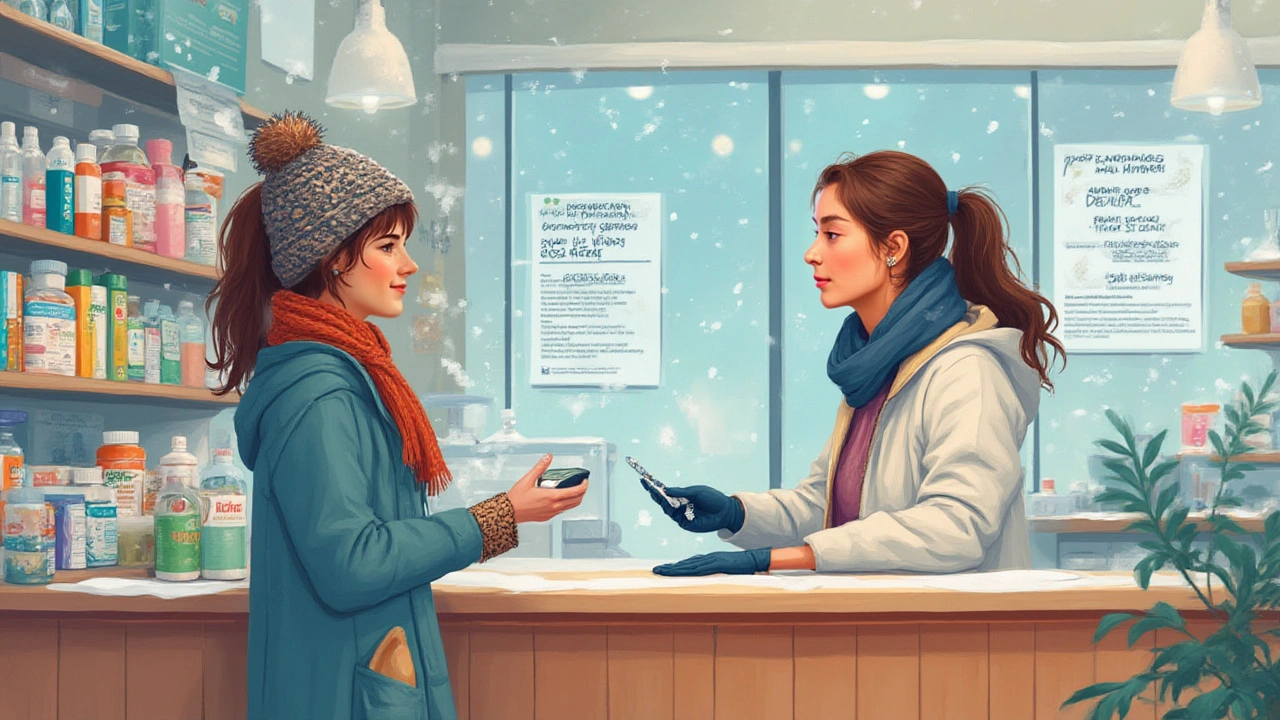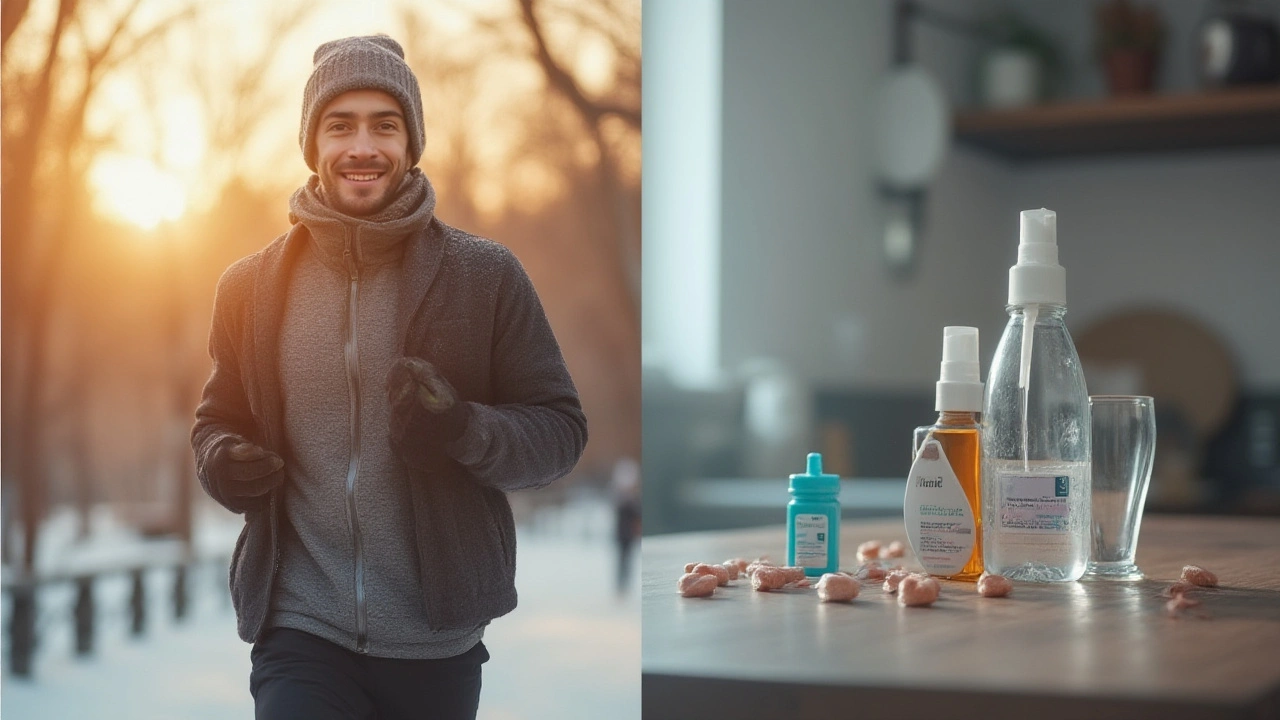Sneeze counts practically double, tissues line every desk, and someone somewhere is sipping a hot lemon concoction with wishful seriousness. The cold season isn’t just annoying—it’s a yearly gauntlet everyone must run. The funny part? Most folks use the same tired remedies every single time, missing out on real pharmaceutical lifehacks that can help them recover faster and miss fewer days curled up in bed feeling miserable. Cold viruses might be ancient, but there’s no rule saying your approach has to be outdated. If you want to outmaneuver bacterial baddies and viral invaders without unnecessary suffering, it’s time to pick up a few new tricks.
Understanding the Enemy: The Science of Cold Viruses
Here's the thing: the average adult catches two or three colds per year, but kids can rack up seven or eight. What’s actually hitting us? Over 200 viruses—rhinoviruses rule the crowd. Pharmaceutical lifehacks for cold season start with knowing what you’re really dealing with. Contrary to popular belief, antibiotics are useless here. Unless your cold turns into something nastier (think sinus infection certified with bacteria), popping those pills just upsets your gut flora for nothing. A quick look at this data table tells the story:
| Virus Type | % of Colds |
|---|---|
| Rhinovirus | 30-50% |
| Coronavirus | 10-15% |
| RSV | 5% |
| Others | Up to 20% |
Most colds go away in about 7-10 days. Why do some people bounce back while others feel wiped out for weeks? Genetics, stress, sleep, and how quickly you start certain treatments make a huge difference. A 2024 study in the Journal of Infectious Diseases found that taking fast action—within the first 12 hours of symptoms—shortens colds by nearly 30%. Have a medicine cabinet stocked for instant defense, and you’re ahead of the pack before you even sniffle.
The Real Power Players: What to Stock—and Why
Your neighbor swears by chicken soup, but let’s get straight to what science (and pharmacists) back up. Not all cold meds are equal, and knowing which ones work for specific symptoms will keep you functioning—and safe. For congestion, oxymetazoline nasal sprays provide fast relief, but don’t use them more than three days straight, or you risk rebound congestion. Pseudoephedrine tablets are highly effective, but cause jitters and sleeplessness in some, so use them with lunch instead of late dinners.
- Acetaminophen handles aches and reduces fever, but be careful—don’t double-dip with combo cold meds also containing acetaminophen, or you could harm your liver.
- Ibuprofen soothes sore throats and headaches, and it’s anti-inflammatory. Bonus: it may help you sleep through the night thanks to its lasting effect.
- Dextromethorphan knocks out dry coughs. Mucous still bothering you? Opt for guaifenesin; it loosens secretions and helps get that gunk up and out.
- Zinc lozenges (start fast, no stomach issues!) can shorten cold length by a modest but real margin, but skip them if you have zinc allergies.
Checking the expiration dates on meds, reading ingredient lists to avoid accidental overdoses, and making sure you’ve got an up-to-date thermometer can prevent more headaches than any tablet can fix. If you’re a parent, a digital pediatric dosing syringe beats the old teaspoon any day for fever reducers.

Immune Boosting Legwork: What Actually Works (and What Doesn’t)
Boosting immunity sounds like something from a superhero comic, right? Here’s the lowdown. Vitamin C won’t stop you from catching a cold, but moderately high daily doses may trim down the sick days—just don’t go wild, or you’ll get tummy troubles. Echinacea users are split; studies show less than a 10% average drop in cold risk, so don’t expect miracles. One top hack that’s been shown in meta-analyses: probiotics. Consistent daily doses, especially with strains like Lactobacillus rhamnosus GG, reduce the chance of respiratory infections by over 20%.
- Probiotic-rich yogurts or supplement powders: easy to add to your breakfast.
- Daily moderate physical activity—not marathon training, but skipping the couch counts. Exercise ramps up immune defense and lowers cold risk by nearly 40% in some trials.
- Hydration hacks: sipping water regularly helps thin mucus and supports your body’s defense lines. Many people forget this simple but super effective tip.
Think sleep doesn't matter? Research from the University of California tracked volunteers over a year—those clocking less than six hours of sleep had quadruple the odds of catching a cold compared to folks getting seven hours or more. If your schedule’s packed, even short power naps help.
Big Misconceptions: Myths, Mishaps, and Money Wasters
Cold season seems to attract half-baked theories and old wives’ tales more than any other time of year. Antibiotics, again: don’t use them unless you truly need them. You don’t want to help breed the next generation of superbugs. There’s also no evidence that mega-dosing vitamins will give you bulletproof immunity. In fact, taking too much vitamin A or E can actually make you sicker.
- Steaming your face may feel nice, but it doesn’t “kill” viruses. It just temporarily eases stuffiness.
- Drinking whiskey or hot toddies is more likely to dehydrate you and undermine recovery, not help.
- Essential oils? They can open your nose thanks to their strong scent, but don’t count on them to cure anything—no reputable study backs them for killing viruses in the body.
Money spent on cough syrups for kids under six? Wasteful, and potentially risky—most pediatric societies don’t recommend them. Stick to honey for children over one year old; it works better and has fewer risks, according to research from the Mayo Clinic. Here’s a pro move: use a cold-mist humidifier at night to keep nasal passages moist and speed up healing. This was shown to reduce the cough and congestion period in a 2023 pediatric study.

The Cold-Season Survival Plan: Being Prepared and Recovering Faster
So, what separates the half-miserable from the healthy? It’s usually their routine. Washing your hands is the number one defense—do it every time you come home, before eating, or after blowing your nose. Don’t forget your phone is basically a germ magnet—wipe it down. Touching your face unconsciously is practically a sport during cold season, so be aware and keep hands away from eyes and nose.
- Keep a ready-to-go kit in your car or bag: acetaminophen, zinc lozenges, saline spray, and a water bottle. It’s way better than scrambling to the pharmacy with a runny nose and a foggy brain.
- If you work in an open office or have kids in daycare, invest in a stash of disposable masks. A 2022 study in the American Journal of Public Health found wearing a mask when symptoms start can cut transmission to family and coworkers by 40%.
- Skip work or school if you’re running a fever or have unstoppable sneezes—not just for you, but to protect others.
Want to bounce back faster? At the first sign of a scratchy throat or runny nose, use saline nasal rinses. They remove viral particles early and decrease symptom length if used several times a day. If your cold lingers more than ten days, gets worse suddenly, or you have shortness of breath, it's time to check with a real doctor. Don't gamble with your health—or that of those around you.
Most people take the cold season lying down—literally. But that doesn’t have to be your fate. With a bit of knowledge, the right pharmacy tools, and a plan that kicks in before you’re flat on your back, you can really change the game. Being ready means more free time, fewer sick days, and more energy for stuff that actually matters. Give these hacks a try; you’ll thank yourself next time the sniffles come knocking.

